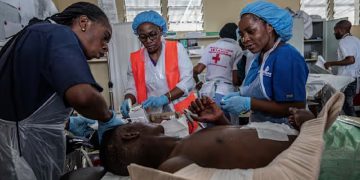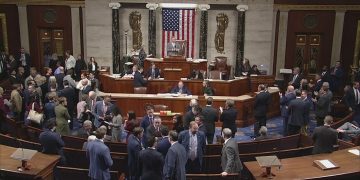In a significant development for international relations, Nigeria has officially been accepted as a partner country in the BRICS group, as announced by the Brazilian government on January 17, 2025.
This inclusion marks a pivotal moment for Africa’s largest economy and adds to the growing alliance of emerging market nations.
Strengthening Global Alliances
As the ninth partner country, Nigeria joins an eclectic group that includes Belarus, Bolivia, Cuba, Kazakhstan, Malaysia, Thailand, Uganda, and Uzbekistan.
The BRICS bloc, originally formed by Brazil, Russia, India, China, and South Africa, now represents over half of the world’s population and accounts for more than 45% of global GDP. This expansion signals BRICS’s increasing influence on the international stage.
Brazil, which currently holds the rotating presidency of BRICS, emphasized Nigeria’s converging interests with other member nations.
The Brazilian government noted that Nigeria has been actively involved in strengthening cooperation within the Global South and reforming global governance—key priorities during Brazil’s presidency.
Economic Significance
As one of the world’s top oil producers, Nigeria brings substantial economic weight to the BRICS partnership.
The country’s inclusion allows it to participate in BRICS meetings and events, fostering opportunities for trade and investment collaboration with other member countries.
However, it is important to note that this partnership status does not grant full membership privileges such as voting rights.
A Step Towards Greater Cooperation
The decision to include Nigeria as a partner country aligns with its commitment to enhancing international collaboration and leveraging economic opportunities.
The Nigerian government views this partnership as a platform to advance shared goals in trade, investment, energy security, infrastructure development, technology, and climate change.
The BRICS partnership also represents an opportunity for Nigeria to engage more actively in shaping a fair and equitable global economic order.
As discussions around reforming global governance continue to gain traction, Nigeria’s involvement could play a crucial role in advocating for the interests of emerging economies.
A Promising Future
Nigeria’s acceptance into the BRICS partnership is a significant milestone that reflects its growing influence within the international community.
As the country navigates this new chapter, it will be essential to leverage its position to foster economic growth and strengthen ties with other emerging markets.
With Nigeria now firmly positioned within this influential bloc, the potential for enhanced cooperation among member countries could lead to transformative changes in global trade dynamics and governance structures.
As BRICS continues to evolve, all eyes will be on Nigeria to see how it capitalizes on this opportunity for greater engagement on the world stage.













